Keto vs. Vegan Diets
A common knock on keto diets is that you don’t get the nutrients your bodies needs if not eating traditional high carb fruits and vegetables. If you have read our book Keto: The Complete Guide to Success on the Ketogenic Diet, then you know this isn’t true. But lets dive into here to see where the nutrients are coming from in our food.
Nutrient Density of Foods:
Let’s start by taking a look at some common foods and how much vitamins and minerals are contained in each. If you set a plate in front of most people with a steak, kale and blueberries on it and ask where the vitamins and minerals are, they would probably say the kale and blueberries. The media is constantly telling us that those are the “superfoods.”
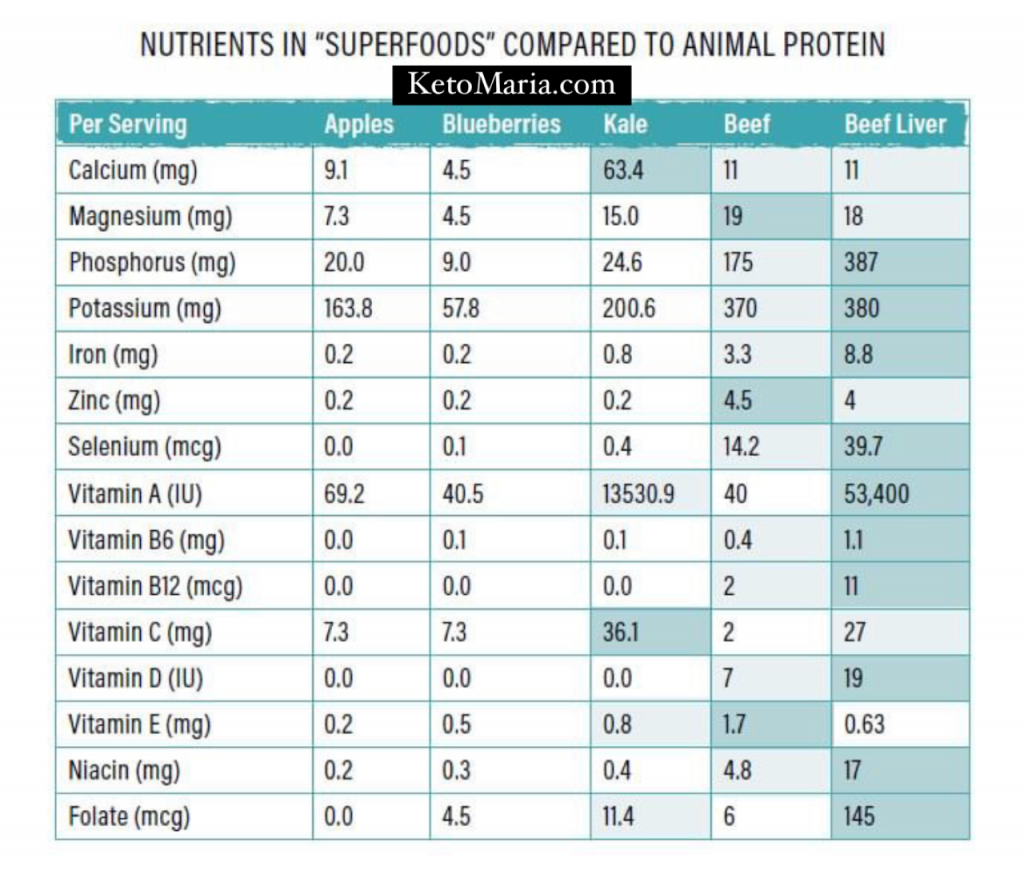
Chart Source: Keto: The Complete Guide to Success on The Ketogenic Diet, including Simplified Science and No-cook Meal Plans.
Beef is where it is at! Beef is higher across a wide range of vitamins and minerals than both kale and blueberries! An apple a day helps keep the doctor away? That saying should be “A Sirloin steak a day helps keep the doctor away”!
I believe that our medical community is too afraid to say “Eat Meat” because they mistakenly believe that saturated fat is bad for us. But let me tell you this, one of the most common ailments I see with clients is osteopenia and osteoporosis. If you look into the science and what the sheath of our bones are made of… it is fat! Not just any fat… saturated fat! No wonder we have a rise in bone health problems, we are told to not eat ANY saturated fat!
When I started researching this for our book about 3 1/2 years ago, it actually made me frustrated and angry! I thought I knew a lot about my food and the macro and micro nutrients in it. But why didn’t I know that animal protein was some of the most nutrient dense foods there is? And organ meats, those are the real superfoods loaded with vitamins and minerals. But you never hear about that. Not in the media, in diet commercials, or studies. So, why is that? My guess is that meat has been demonized by poor studies and vegetarian leaning politics that nobody wants to say that beef is good for you. So the message gets buried and we no longer know what foods have the most vitamins and minerals.
So next time you look at a plate of food, look to eat the protein first as that is where you are getting your nutrients anyway. Plus, lots of complete proteins to build and maintain lean mass which is so important.
Nutrient Density of Vegan Diet:
It is commonly believed that vegan diets are healthy due to all the vitamins and minerals you get from fruits and veggies. Well lets take a look at a traditional vegan diet and the breakdown of vitamins and minerals in it. In the below comparison chart I compare the vegan Dr Greger’s example menu listed HERE with a well formulated carnivore and keto diet.
Nutrient Density of Keto Diet:
Just as vegetarian diets are looked at as full of vitamins and minerals a ketogenic diet is looked at as being low in nutrients. Let’s take a look at a keto diet and see how many vitamins and minerals it has. For the Keto option I used sirloin steak, salmon, beef liver, eggs, spinach, tomato, onion, some herbs and spices and pork. The carnivore had the same meats but omitted the veggies and increased the protein sizes.
Now let’s compare the two and see who wins:
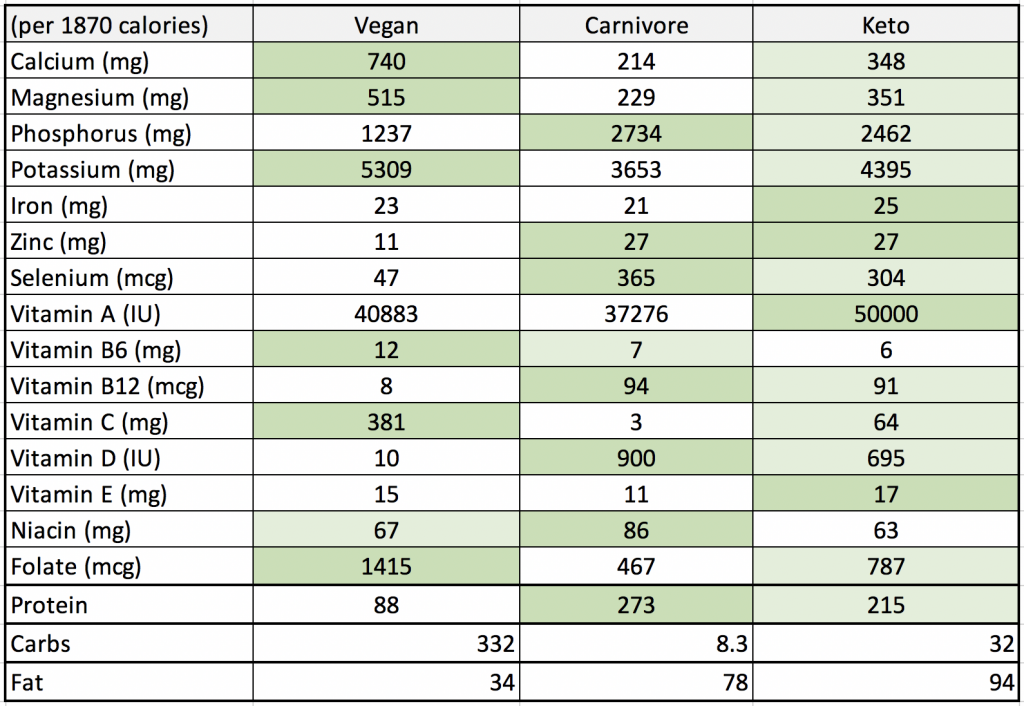
So, as you can see, keto stacks up really well in nutrient density. Even carnivore stacks up well against vegan. And both will provide the protein your body needs unlike vegan diets. When you factor in the bioavailability of nutrients and the fact that some nutrient like vitamin C depend on carbohydrate intake and you don’t need nearly as much antioxidants when eating a low inflammation lifestyle, then you can see there are no nutrient deficiencies when eating a well formulated ketogenic diet. Add to that the issue of high dose antioxidants not being all they are touted to be, and you see that a ketogenic diet can be preferential to a vegan diet for nutrients. For more on vitamin C needs and content in meats, go HERE.
There are caveats as well. The vegan plan includes things we know will mess with hormone balance like Soy and Flax. Also, the plant sources of protein are not nearly as bioavailable as the animal sources. So while the vegan plan gives about 80g protein, this is not enough for most people and will lead to loss of muscle over time. There is something called the leucine threshold. You need about 2.5 grams of this amino acid to stimulate mTOR or muscle protein synthesis (building muscle). Plant based protein require more protein to supply the amount of leucine needed to build lean mass. That makes the protein amounts, even in the higher protein vegan example, inadequate.
Also, of note is the very low fat intake in the vegan diet. The body needs at least 40g or so of fat to produce healthy hormones. All your sex hormones are made from fat, ideally saturated fat and cholesterol. When you deprive your body of these essential fats your hormones suffer, and your liver goes into overdrive trying to make enough for the body. Also, much of the fat is from omega-6 vegetable oils. Let’s take a look at what these oils do to the body.
Also, it is very hard to get enough complete proteins when vegan to maintain muscle and strength over time. Many will say “broccoli has even more protein per calorie than beef” but this isn’t a genuine statement. This chart explains why that thinking is flawed. The protein in broccoli is a fat less complete amino acid profile meaning you need to eat much more of it to trigger muscle building and repair.
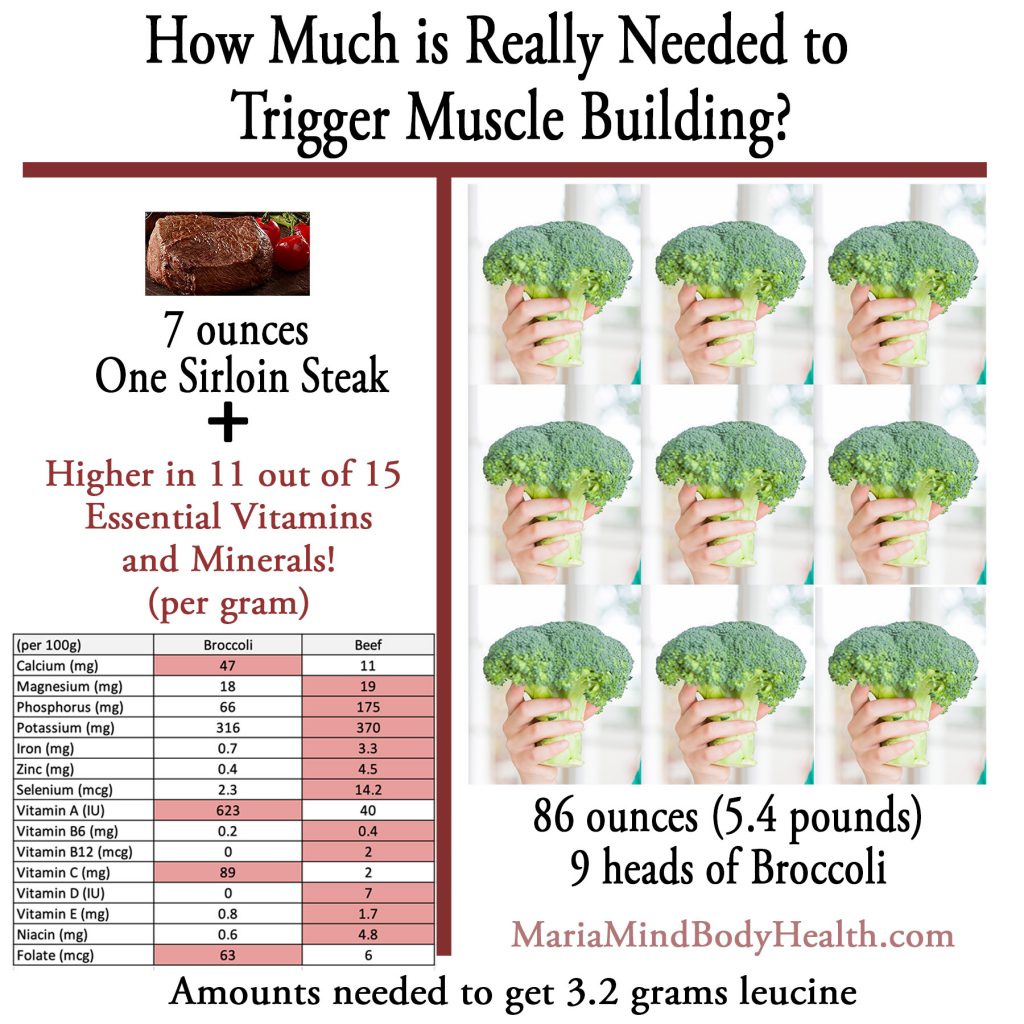
Additional Considerations, Vegetable Oils:
Red meat has long been wrongly blamed for IBS. A study published in December 2009 shows that linoleic acid harms the gut but news reports and health websites mislead by blaming ‘red meat’ — which contains the least linoleic acid. It’s the polyunsaturated fats and oils, derived from seeds such as sunflower, safflower, soy and corn, which are the major dietary sources of linoleic acid; they are the most harmful oils for those with intestinal problems because they increase inflammation. When it is absorbed in the intestinal lining, linoleic acid is transformed to arachidonic acid, which is a component of the cell membranes in the bowel. Arachidonic acid can then be converted into various inflammatory chemicals. High levels of these chemicals have been found in the intestinal tissue of people suffering from intestinal disorders.
Long chained triglycerides come from VEGETABLE OILS…this means anything that is pre-packaged; salad dressings, roasted nuts, “baked” chips, popcorn, crackers, cereal…you name it! We have been wrongly pushed to replace healthy saturated fats like coconut oil with harmful fats such as canola!
In this presentation by Dr Eades he lays out a very compelling case against vegetable oils. THIS study shows the increase in linoleic acid in the fat stores of Americans. We need less, not more vegetable oils.
Keto Not Sustainable?
Too often the media claims Keto is an extreme diet that is too limiting for long term, however I’ve written over 10 books that are filled with delicious foods that my whole family enjoys. This is a very sustainable diet that is filled with the nutrients our body needs. On the other hand, the media tends to applaud vegans and their plant-based diets. In reality, the vegan diet is extremely limited and is devoid of nutrients our bodies need! I find it comical that the same people that say keto is too restrictive will then recommend eating vegan. Vegan is way more restrictive. When did eating meat and veggies become so radical?
My boys and I enjoy watching a show on the History Channel called Alone. It is a great program where they put 10 participants alone into the most extreme wilderness environments with basically nothing but a video camera. They can quit at any time and most do because of the mental hardships of being lonely. But some quit because of hunger and lack of funding food. One participant was a vegan and he knew he had to give up hush vegan lifestyle in order to survive. He couldn’t forage all day for plants, and he couldn’t get enough calories to survive! Grocery stores make a vegan lifestyle possible. Our ancestors would never survive eating only plants. It would take too much time foraging. It is much more sustainable catching one fish a day to survive on and making a stock from the bones to get a huge punch of nutrients from the fish bones.
Human Digestion:
Another interesting fact is that the human cecum resembles a dog. It is short and isn’t able to fully digest plant matter. Plant matter ferment in our gut and often causes extreme gas. A koala bears cecum is long and able to digest plant matter as it is a true vegetarian. Plant fiber is fermented in the cecum and turned into saturated fatty acids. Look at this comparison:
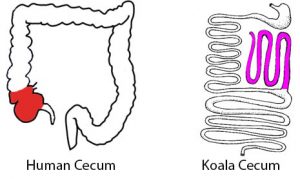
I think the human digestive track shows that we were meant to primarily eat meats and only a little vegetables.
Environmental Impact:
Another point to address is the environmental impacts of eating animal products vs plants. Too often we blame consuming beef too hard on the environment. But the reality is we need MORE ruminants, not less. Feeding the plant with ruminants will actually reduce the impact on the environment compared to feeding the planet vegetarian (which isn’t even possible as we don’t have enough farm land). More on this in THIS video.
Client Example:
I had a local client named Laura come into my office. She was a raw vegan for over 10 years. She was on a large dose of thyroid medication and she has very thin hair. She was so sad that her hair loss had been getting terrible.
Laura now is a carnivore. She eats only organic meats that she gets from a local farmer. She finds her life so much more fulfilled since she doesn’t need to eat every 2 hours because she was always hungry. She eats once a day and her thyroid is now healed and she is thriving! She even hiked the El Camino trail in Spain, and she did it completely carnivore!
You would think that the money she spends on food went up but no! She not only doesn’t have to go to the co-op every other day to get massive amounts of produce, she saves over $2000 a year as a carnivore!
Conclusion:
Eating keto is not only sustainable, but it is more nutrient dense, better for the environment and will help you remain strong as you age. Don’t believe it when you see that somehow keto is depriving your body of nutrients or you have to supplement when doing keto. You get all the nutrients the body needs when eating this way.
TESTIMONY OF THE DAY
“Hi Maria,
This is my rocket star husband… from a bursting 52 to a size 33 skinny jean from Hollister! His life has been saved and that’s the absolute truth! He would not be here today (after 3 heart attacks) without starting Keto 18 months ago.
He has changed the minds of many in the medical community and I’m forever grateful!” Lori
Most people I consult are doing keto totally wrong. Get fast results with the my NEW Keto School!
Click HERE to check out my NEW Keto School!
If you would like to make a difference and support a small family rather than making a minuscule sale for a large company, I am happy to announce that you can now get my books as a high quality ebook that works on any platform (all done by my wonderful husband!). This is an ebook format that works on any computer or mobile device. It is a beautiful pdf that has all the full color pages and layouts as the printed books with click-able table of contents and searching capabilities. This is extremely useful when trying to find a recipe. These books are much higher quality than the ebook platforms (kindle, apple). Plus, most of the profits don’t go to Amazon or apple!

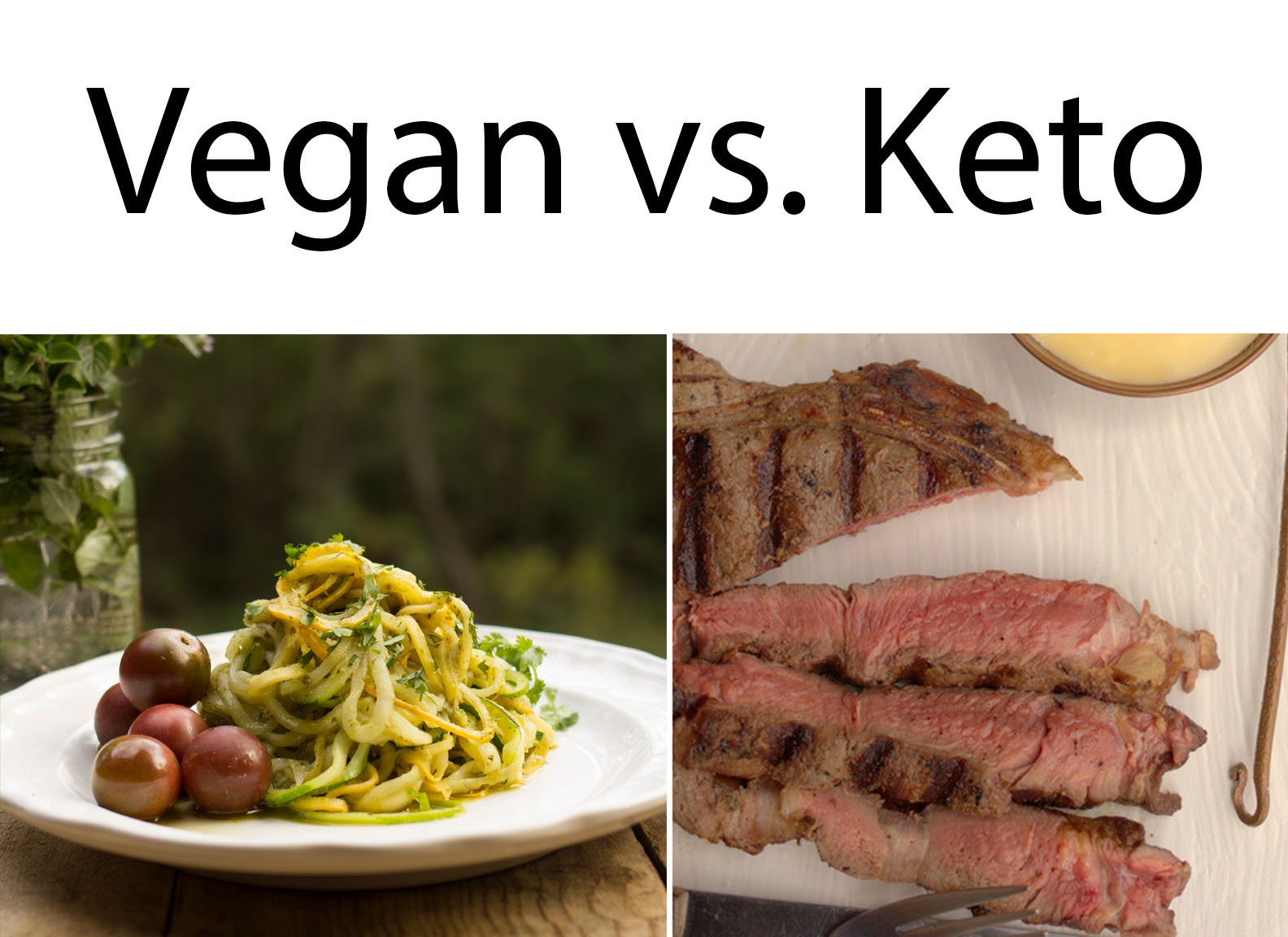
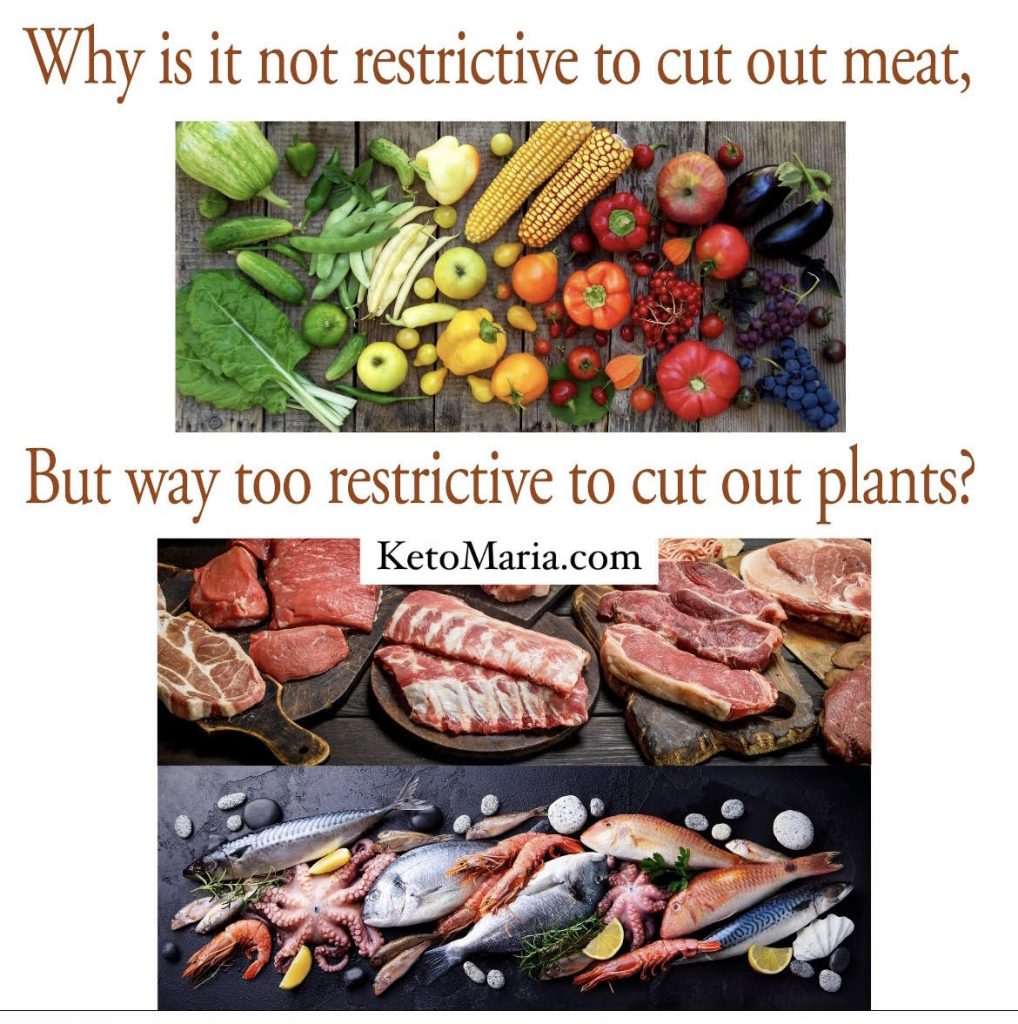
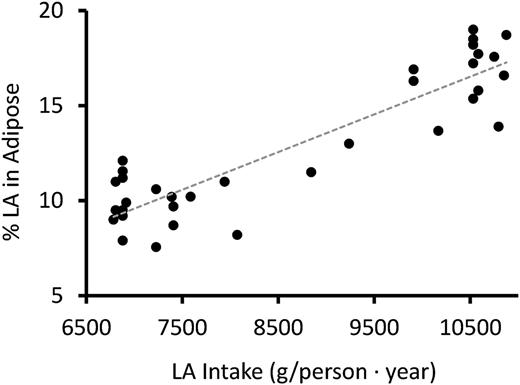

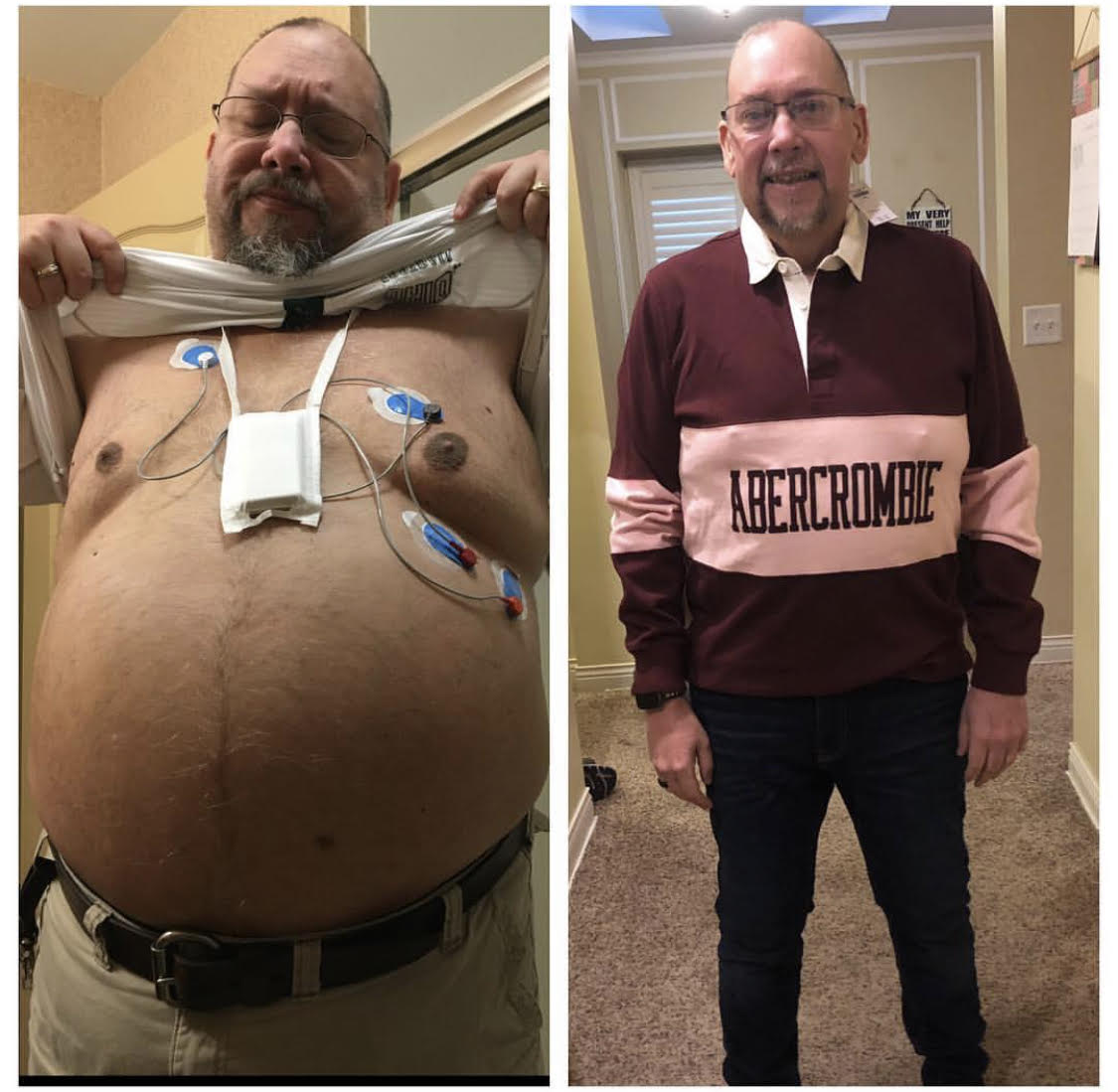


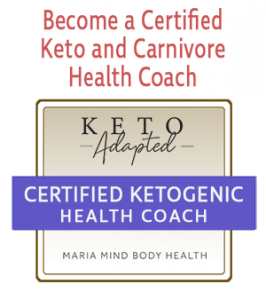

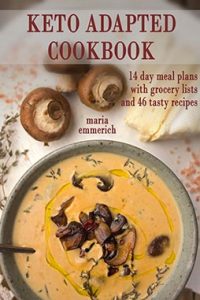

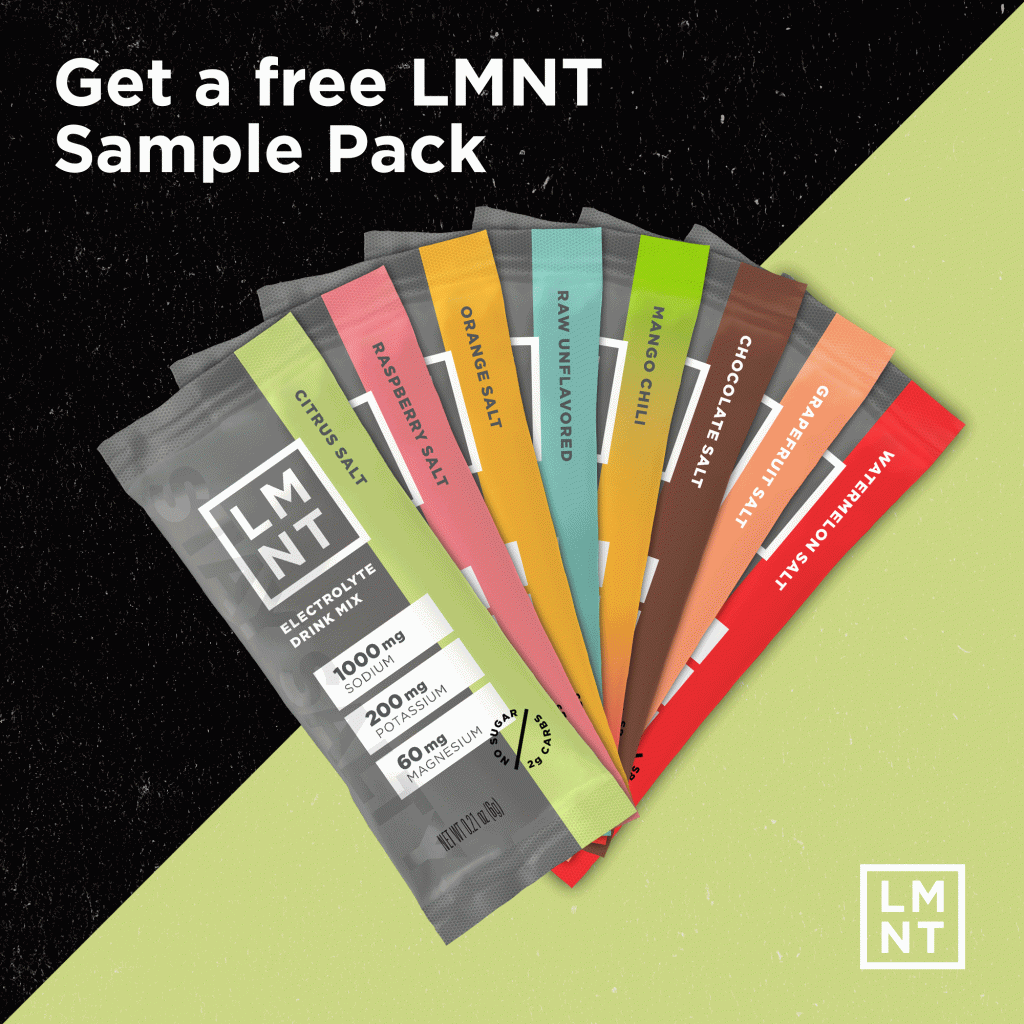
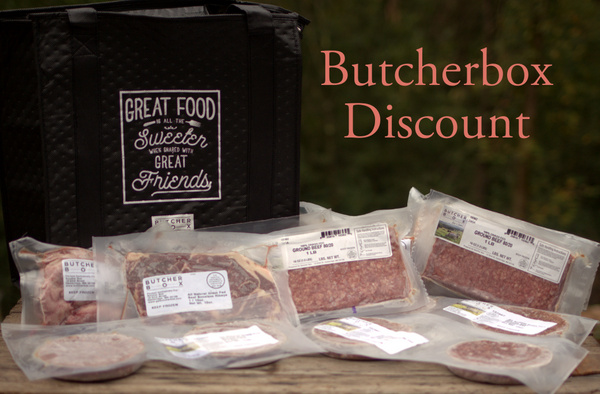


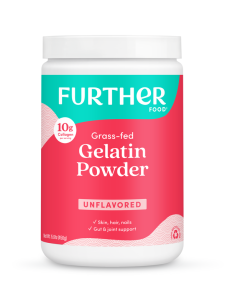
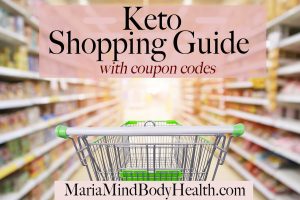

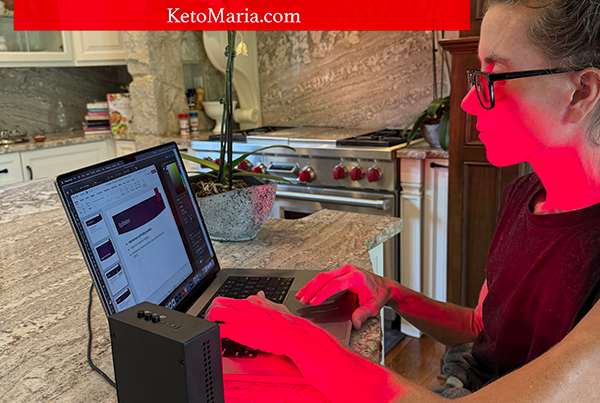
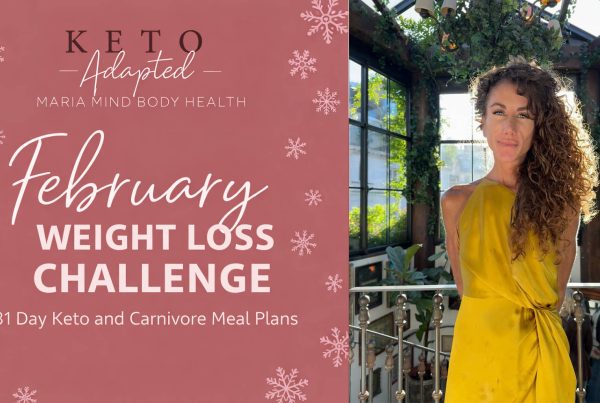
This is a wonderful piece, thank you so much for writing it! The part about how our ancestors would not have been able to forage enough calories to live is particularly apt. A few other things to point out – there are no plants which can provide enough B-12 for humans without getting some of it from meat. So much so, that Vegans must take B-12 supplements created from fermented bacteria so they don’t become deficient. Also, the vitamin in plants is not very bio-available to humans. So while beef and kale may both have “higher” numbers, only that in beef, particularly the liver, is actually used by your body. Weston A. Price found out in what, the 1930s? that a vegan, high carb diet is detrimental to oral health, imagine what it does to your insides.
Thanks!